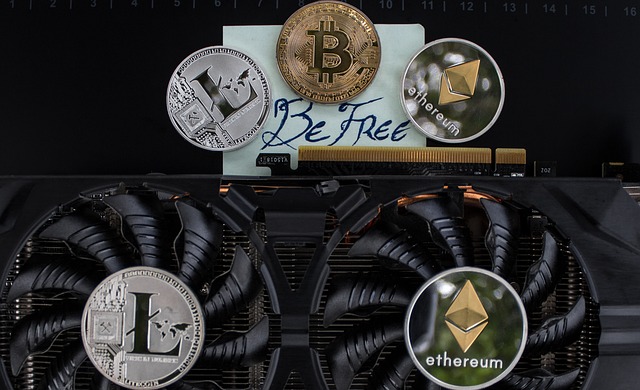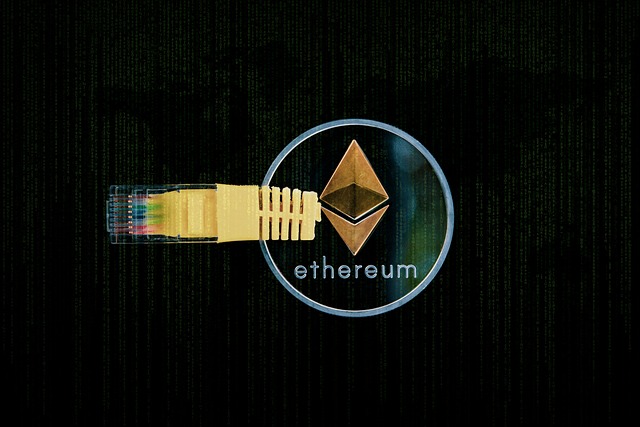Pros and Cons of Embracing Decentralized Finance
Pros and Cons of Embracing Decentralized Finance

What is Decentralized Finance and How Does it Work?
Decentralized finance, also known as DeFi, is an emerging concept that leverages blockchain technology to transform traditional financial systems. At its core, DeFi aims to eliminate intermediaries like banks and financial institutions, allowing individuals to have direct control over their financial transactions. Unlike traditional centralized finance, where a central authority oversees and regulates transactions, DeFi operates on a decentralized network where participants interact peer-to-peer.
The workings of DeFi are primarily mediated by smart contracts, which are self-executing contracts with predefined rules encoded on the blockchain. These contracts automatically execute transactions once the conditions of the contract are met, without the need for intermediaries. This eliminates the need for trust in counterparties, as the terms of the smart contract are immutable and transparent. Through DeFi, users can access a range of financial services such as loans, savings, and investments, all facilitated by smart contracts and enabled by blockchain technology. By leveraging the power of decentralization and smart contracts, DeFi has the potential to disrupt traditional finance by offering more accessible, efficient, and inclusive financial services to individuals around the world.
The Potential Benefits of Embracing Decentralized Finance
Decentralized finance, or DeFi, has gained significant attention in recent years due to its potential benefits. One of the key advantages of embracing DeFi is the elimination of intermediaries. Traditional financial systems often involve third-party intermediaries, such as banks or brokers, which can lead to high fees and slower transaction times. With DeFi, blockchain technology is leveraged to create a peer-to-peer network, removing the need for these intermediaries. As a result, transactions can be executed directly between parties, reducing costs and increasing efficiency.
Another benefit of decentralized finance is the access it provides to financial services for individuals who are unbanked or underbanked. In many parts of the world, traditional banks may be inaccessible due to geographical barriers or lack of documentation. DeFi platforms, on the other hand, operate on the internet and only require a smartphone and internet connection to participate. This opens up opportunities for financial inclusion, allowing individuals to access savings, loans, and investment opportunities that were previously out of reach. Moreover, the transparency and immutability of blockchain technology in DeFi enhance trust, making it an attractive option for those who lack faith in traditional financial systems.
The Risks and Challenges of Embracing Decentralized Finance
While decentralized finance (DeFi) holds immense potential, it is essential to consider the risks and challenges associated with its adoption. One of the primary risks is the volatility of cryptocurrencies, which serve as the foundation of DeFi. The unpredictable nature of digital assets can result in significant fluctuations in value, leading to potential financial losses for users. Moreover, the lack of regulation in the decentralized finance space raises concerns about investor protection and the potential for fraudulent activities. Without centralized oversight, it becomes crucial for individuals to conduct thorough research and exercise caution when participating in DeFi platforms.
Another challenge of embracing decentralized finance is the complexity of the systems involved. DeFi protocols often require users to navigate various platforms, such as decentralized exchanges, lending platforms, and liquidity pools. Moreover, the use of smart contracts, while providing automation and transparency, also introduces a level of technical complexity that may intimidate newcomers to the space. Understanding how these systems function and ensuring the security of transactions can be a steep learning curve for individuals unfamiliar with blockchain technology. Additionally, the potential for coding bugs or vulnerabilities in smart contracts can expose users to risks, highlighting the need for comprehensive auditing and security practices within the DeFi ecosystem.
Understanding the Role of Smart Contracts in Decentralized Finance
Smart contracts play a vital role in decentralized finance. These self-executing contracts are built on blockchain technology and enable the automatic execution of transactions without the need for intermediaries. In other words, smart contracts eliminate the need for trust in financial agreements by relying on code, making the process transparent and secure.
These digital contracts can be programmed to initiate certain actions, such as releasing funds, based on predefined conditions. For example, in a decentralized lending platform, a smart contract can be created to automatically transfer collateralized assets to the borrower once the loan terms are met. This eliminates the need for traditional intermediaries, like banks, and reduces the associated costs and delays. Moreover, smart contracts also ensure that all parties involved in the transaction adhere to the agreed-upon terms, as the code is immutable once deployed on the blockchain.
How Decentralized Finance Can Empower Individuals and Communities
Decentralized finance, also known as DeFi, has the potential to greatly empower individuals and communities. This innovative financial system operates on blockchain technology, allowing for more transparent, secure, and accessible transactions.

One of the key ways DeFi empowers individuals is through financial inclusion. Traditional financial institutions often restrict access to their services based on factors such as location, wealth, or credit history. In contrast, DeFi eliminates these barriers by allowing anyone with an internet connection to participate. This means that individuals who were previously excluded from the traditional financial system can now access and benefit from a range of financial services, such as earning interest on their savings, obtaining loans, or participating in investment opportunities. By democratizing access to financial services, DeFi has the potential to uplift individuals and communities, providing them with greater economic opportunities and control over their financial futures.
• DeFi operates on blockchain technology, ensuring transparent and secure transactions
• Individuals have greater control over their financial assets without intermediaries like banks
• DeFi promotes financial inclusion by eliminating barriers based on location, wealth, or credit history
• Anyone with an internet connection can participate in DeFi, regardless of their background or circumstances
• Previously excluded individuals can now access a range of financial services through DeFi
• These services include earning interest on savings, obtaining loans, and participating in investment opportunities
• By democratizing access to financial services, DeFi uplifts individuals and communities alike
• It provides greater economic opportunities and control over financial futures.
Exploring the Opportunities for Financial Inclusion through Decentralized Finance
In today’s traditional financial system, many individuals and communities face barriers when it comes to accessing financial services. However, decentralized finance (DeFi) has the potential to change this narrative and create opportunities for financial inclusion. DeFi, built on blockchain technology, offers a decentralized and open financial ecosystem that removes the need for intermediaries and allows anyone with an internet connection to access and participate in various financial activities.
One of the significant opportunities for financial inclusion through DeFi is the ability to provide banking services to the unbanked and underbanked populations worldwide. Traditional banking systems often require individuals to meet stringent requirements and have a physical presence, making it challenging for those in remote areas or without proper documentation to access basic financial services. With DeFi, individuals can bypass these obstacles and gain access to services like savings, lending, and investment opportunities, all through a decentralized platform.

The Impact of Decentralized Finance on Traditional Financial Institutions
As decentralized finance continues to gain momentum, traditional financial institutions are beginning to feel the impact of this emerging trend. With its ability to bypass intermediaries and provide direct peer-to-peer transactions, decentralized finance challenges the established financial system’s traditional role and power. This shift poses both risks and opportunities for traditional financial institutions, forcing them to adapt and evolve in response to changing market dynamics.
One of the most significant impacts of decentralized finance on traditional financial institutions is the potential disruption of their business models. With decentralized finance platforms offering services such as lending, trading, and investment management, individuals can now directly access financial products and services without the need for traditional intermediaries. This disintermediation poses a threat to traditional financial institutions by reducing their relevance and potentially undermining their profit margins. As a result, banks and other financial institutions need to reassess their role and find ways to remain competitive in this new decentralized landscape.
Navigating the Regulatory Landscape of Decentralized Finance
The regulatory landscape surrounding decentralized finance (DeFi) can be complex and ever-evolving. As DeFi continues to gain popularity and disrupt traditional financial systems, governments and regulatory bodies around the world are grappling with how to effectively oversee this new paradigm. However, it is important to note that the decentralized nature of DeFi presents unique challenges when it comes to regulation.
One of the main hurdles that regulators face is the lack of a central authority or governing body in DeFi. Unlike traditional financial institutions that are subject to strict regulations, DeFi operates on blockchain technology and smart contracts, which enable peer-to-peer transactions without intermediaries. This decentralized nature makes it difficult for regulators to identify and hold accountable individual participants in the DeFi ecosystem. Additionally, the cross-border nature of DeFi further complicates matters, as different jurisdictions may have varying regulations or differing approaches to overseeing the space.
As regulators navigate this uncharted territory, they must strike a delicate balance. On one hand, they need to protect consumers and preserve financial stability by implementing necessary safeguards and regulations. On the other hand, they must ensure that innovation and growth in the DeFi space are not stifled. This requires an in-depth understanding of the technology and its potential benefits, as well as a proactive approach to addressing risks and fostering responsible practices. Ultimately, a collaborative effort between regulators, industry participants, and other stakeholders is crucial in shaping a regulatory framework that promotes both innovation and consumer protection in the world of decentralized finance.
The Importance of Security and Privacy in Decentralized Finance
Security and privacy are of utmost importance in the world of decentralized finance. As more individuals and communities embrace this new financial paradigm, it becomes crucial to understand and address the potential risks and vulnerabilities that can arise. With decentralized finance, transactions occur directly between parties without the need for intermediaries like banks or financial institutions.

One of the main concerns when it comes to security in decentralized finance is the vulnerability to hacking and fraud. As transactions are conducted on decentralized platforms, there is a need to implement robust security measures to protect users’ funds and personal information. Moreover, privacy becomes a key consideration as well. While blockchain technology ensures the transparency and immutability of transactions, it’s essential to strike a balance between transparency and the need for privacy. Safeguarding users’ financial data and maintaining their anonymity can foster trust and confidence in the decentralized finance ecosystem.
Tips for Getting Started with Decentralized Finance
Starting your journey into decentralized finance can be exciting, but it’s essential to take some initial steps to ensure a smooth transition. Firstly, familiarize yourself with the basic concepts and terminologies of decentralized finance. This may include understanding cryptocurrencies, blockchain technology, and decentralized applications. Learning about these foundational elements will give you a solid foundation to grasp the nuances of decentralized finance.
Once you have a basic understanding, it’s time to choose a reliable wallet to securely store your digital assets. Wallets serve as digital vaults for your cryptocurrencies and tokens, allowing you to send, receive, and store them safely. There are various types of wallets available, including web-based, mobile, hardware, and paper wallets. Assessing your needs and considering factors such as security, user-friendliness, and supported assets can help you make an informed decision when selecting a wallet.
In addition, conducting thorough research on different decentralized finance platforms is crucial. Each platform may offer unique features and advantages, such as decentralized lending, borrowing, or trading. By exploring and comparing these platforms, you’ll be able to find the ones that align with your financial goals and risk tolerance.
Moreover, always remember to stay updated with the latest news and trends in the decentralized finance space. Following reputable cryptocurrency news sources, joining online communities or forums, and participating in discussions can keep you informed about the latest developments and insights.
Finally, it’s important to start small and only invest what you can afford to lose. Decentralized finance, like any financial market, comes with its own set of risks. By gradually testing the waters and gaining experience, you can make well-informed investment decisions and minimize potential losses. Remember, the key is to approach decentralized finance with caution and adopt a long-term mindset.
In conclusion, getting started with decentralized finance requires understanding the basics, choosing a secure wallet, researching different platforms, staying informed, and starting small. With a systematic approach and a willingness to learn, you’ll be well on your way to exploring the opportunities and potential benefits of decentralized finance.
What is Decentralized Finance and How Does it Work?
Decentralized Finance, or DeFi, is a system that allows financial transactions and services to be conducted without the need for intermediaries like banks or brokers. It operates on blockchain technology and utilizes smart contracts to automate processes.
What are the potential benefits of embracing Decentralized Finance?
Embracing Decentralized Finance can provide benefits such as increased financial inclusion, lower fees, faster transactions, transparency, and the ability to have full control over your funds.
What are the risks and challenges of embracing Decentralized Finance?
Some risks and challenges of embracing Decentralized Finance include smart contract vulnerabilities, the potential for hacks or scams, regulatory uncertainty, and the learning curve associated with using new technologies.
What is the role of smart contracts in Decentralized Finance?
Smart contracts are self-executing contracts with the terms of the agreement directly written into code. In Decentralized Finance, smart contracts automate financial processes, such as lending, borrowing, or trading, without the need for intermediaries.
How can Decentralized Finance empower individuals and communities?
Decentralized Finance can empower individuals and communities by providing access to financial services to those who are unbanked or underbanked, enabling peer-to-peer transactions, and allowing individuals to have complete control over their finances.
How does Decentralized Finance promote financial inclusion?
Decentralized Finance promotes financial inclusion by removing the need for intermediaries like banks and allowing anyone with an internet connection to access financial services, regardless of their location or socioeconomic status.
What impact does Decentralized Finance have on traditional financial institutions?
Decentralized Finance poses a potential threat to traditional financial institutions as it challenges their role as intermediaries and disrupts the traditional banking system. However, it also presents opportunities for collaboration and innovation.
How do you navigate the regulatory landscape of Decentralized Finance?
Navigating the regulatory landscape of Decentralized Finance can be challenging due to its relatively new and rapidly evolving nature. It is important to stay updated on regulations, engage with regulatory bodies, and seek legal advice when necessary.
Why is security and privacy important in Decentralized Finance?
Security and privacy are crucial in Decentralized Finance to protect users’ funds and personal information. With the absence of intermediaries, it is important to take precautions such as using secure wallets and platforms and being mindful of potential scams.
What are some tips for getting started with Decentralized Finance?
To get started with Decentralized Finance, it is recommended to do thorough research, start with small investments, use reputable platforms, understand the risks involved, and stay informed about the latest developments in the industry.
Todays Featured Product:
Buy, exchange and grow your crypto securely with a Ledger hardware wallet, combined with the Ledger Live app. It’s never been easier to keep your crypto safe and accessible. Buy direct from Ledger.com and get todays Special Offers Here.




